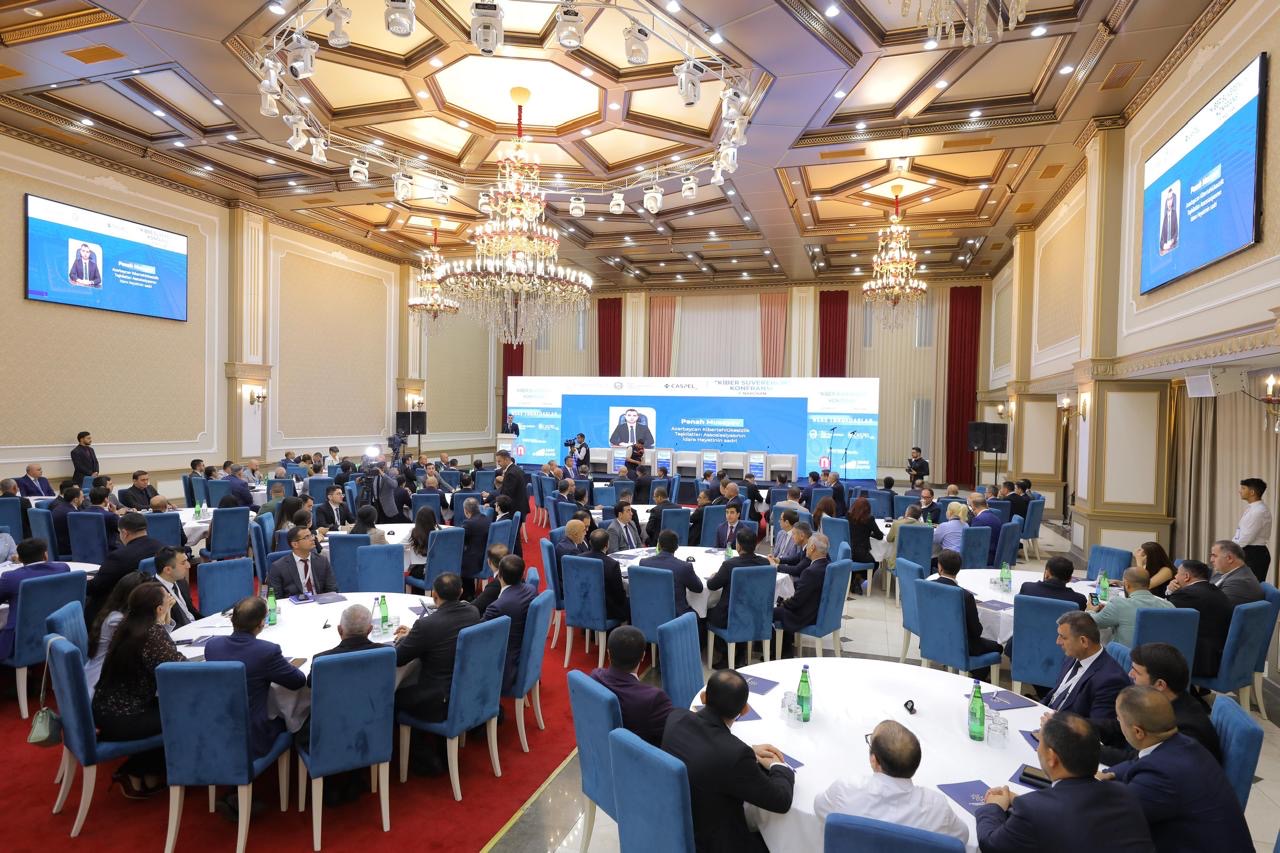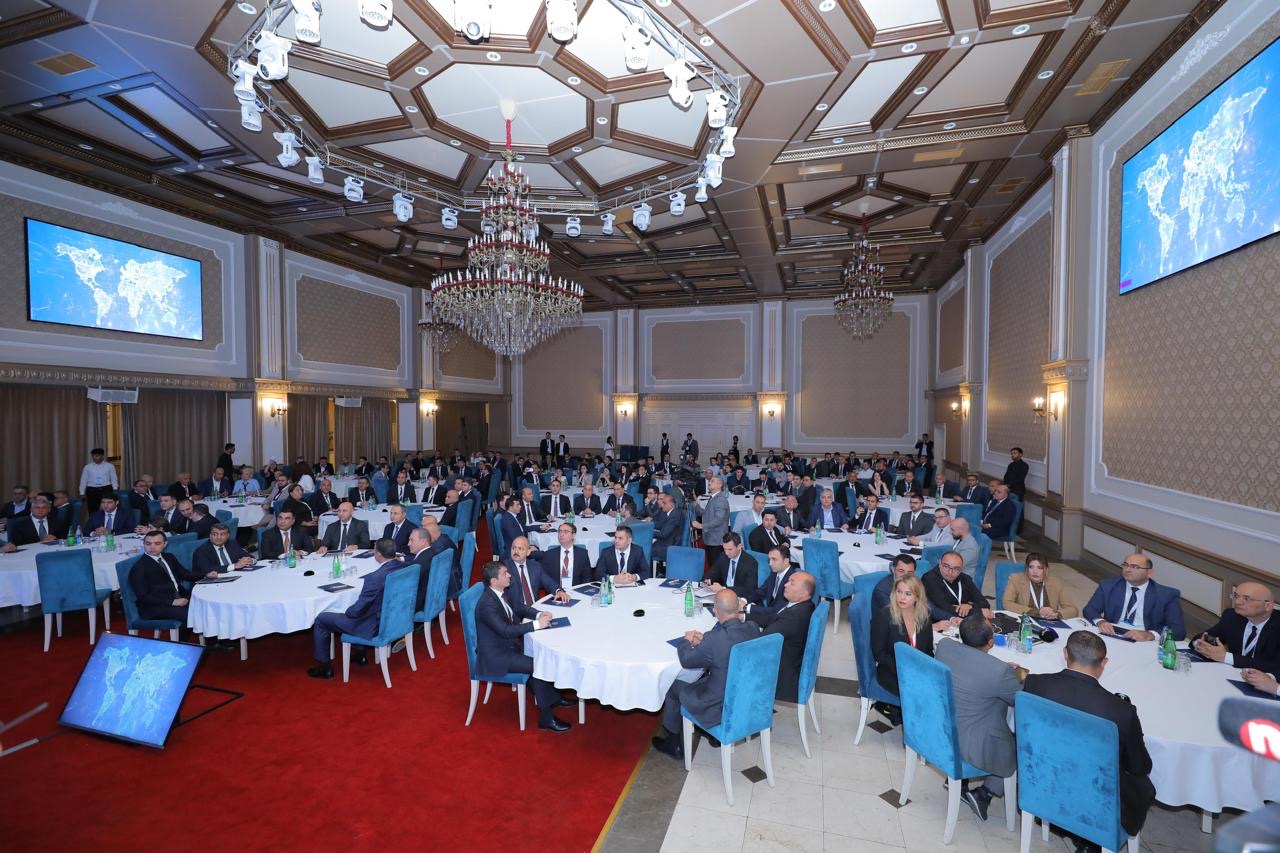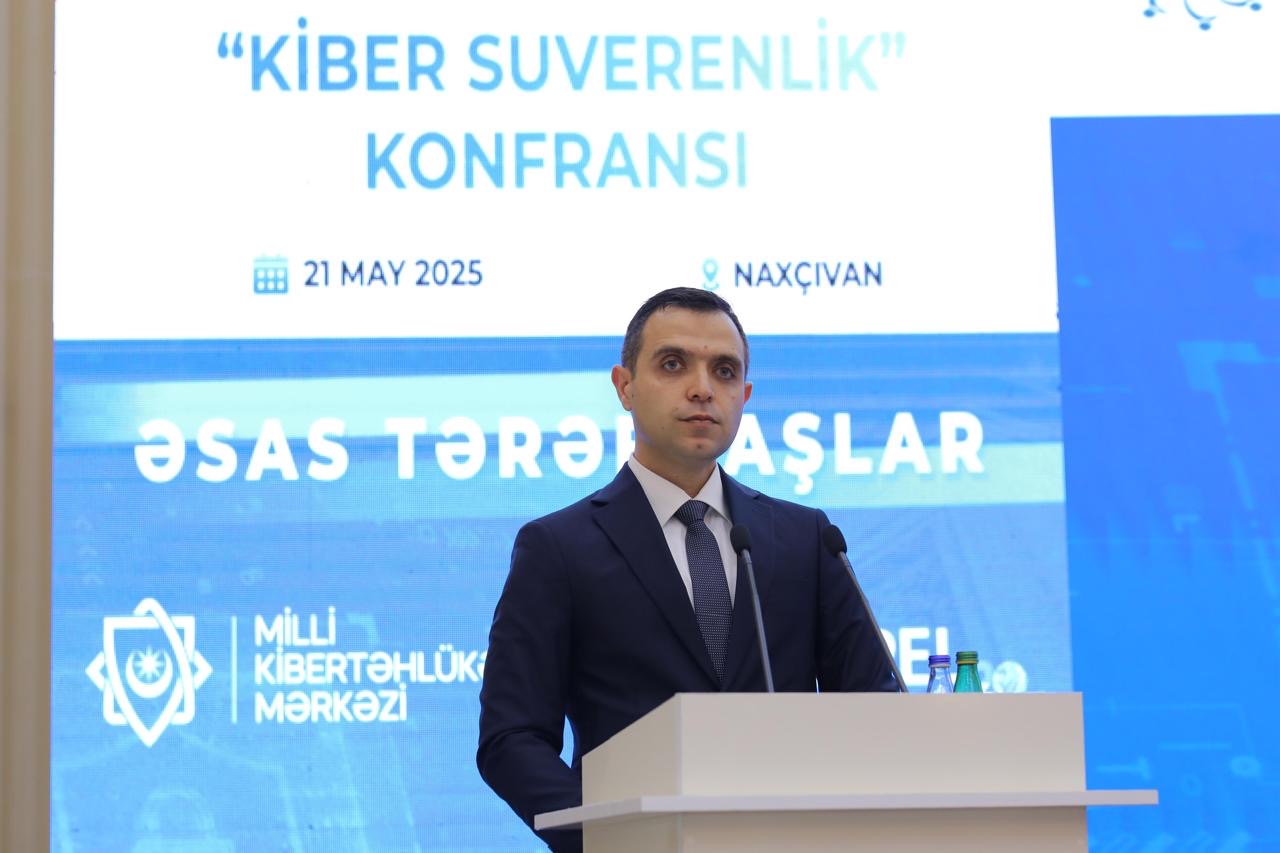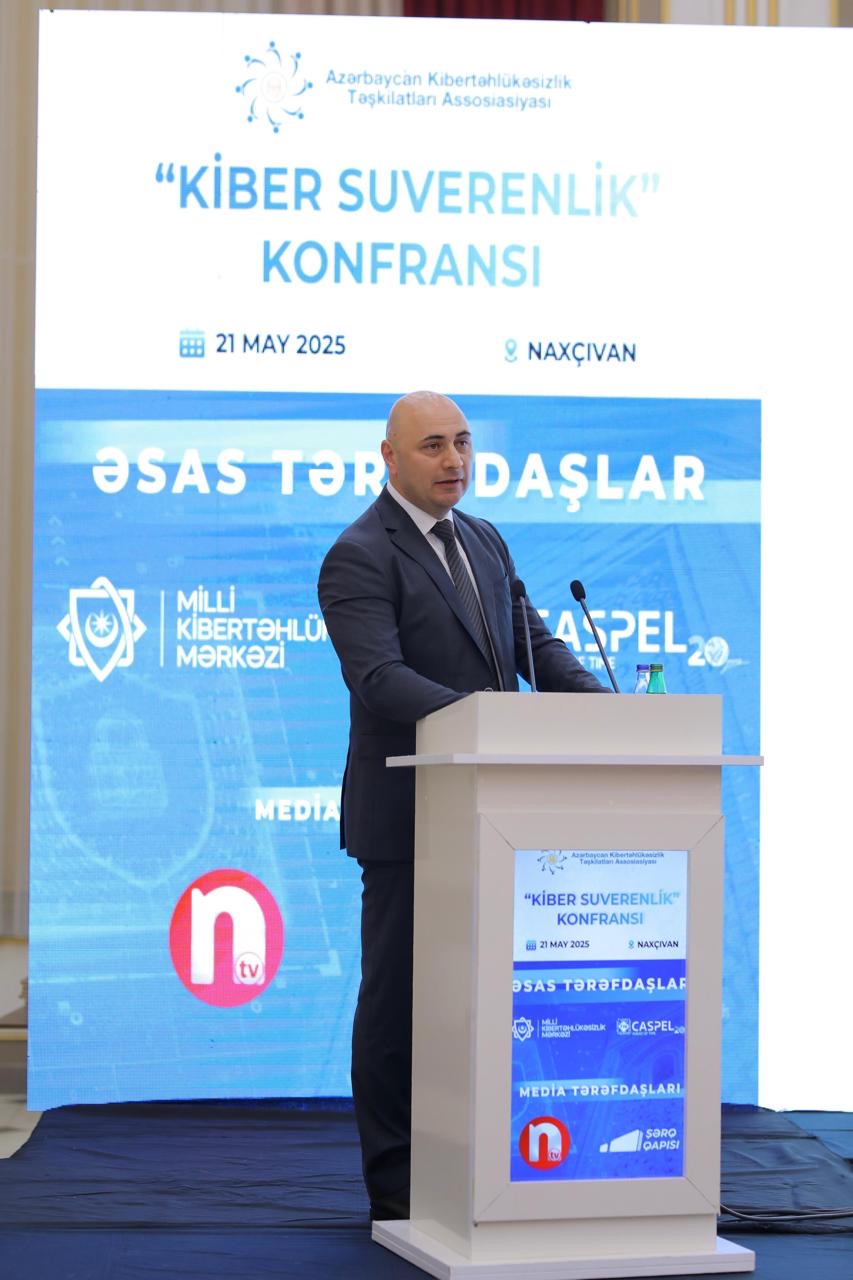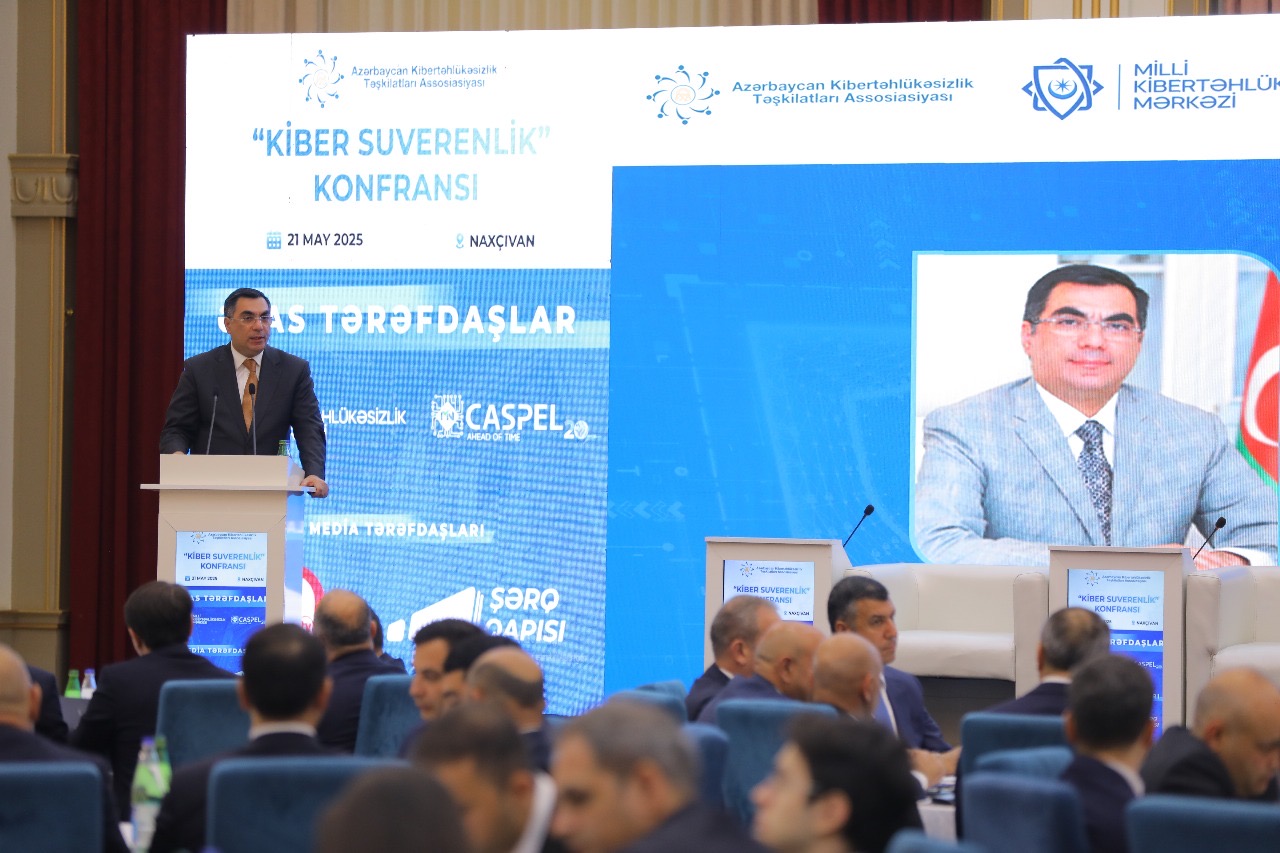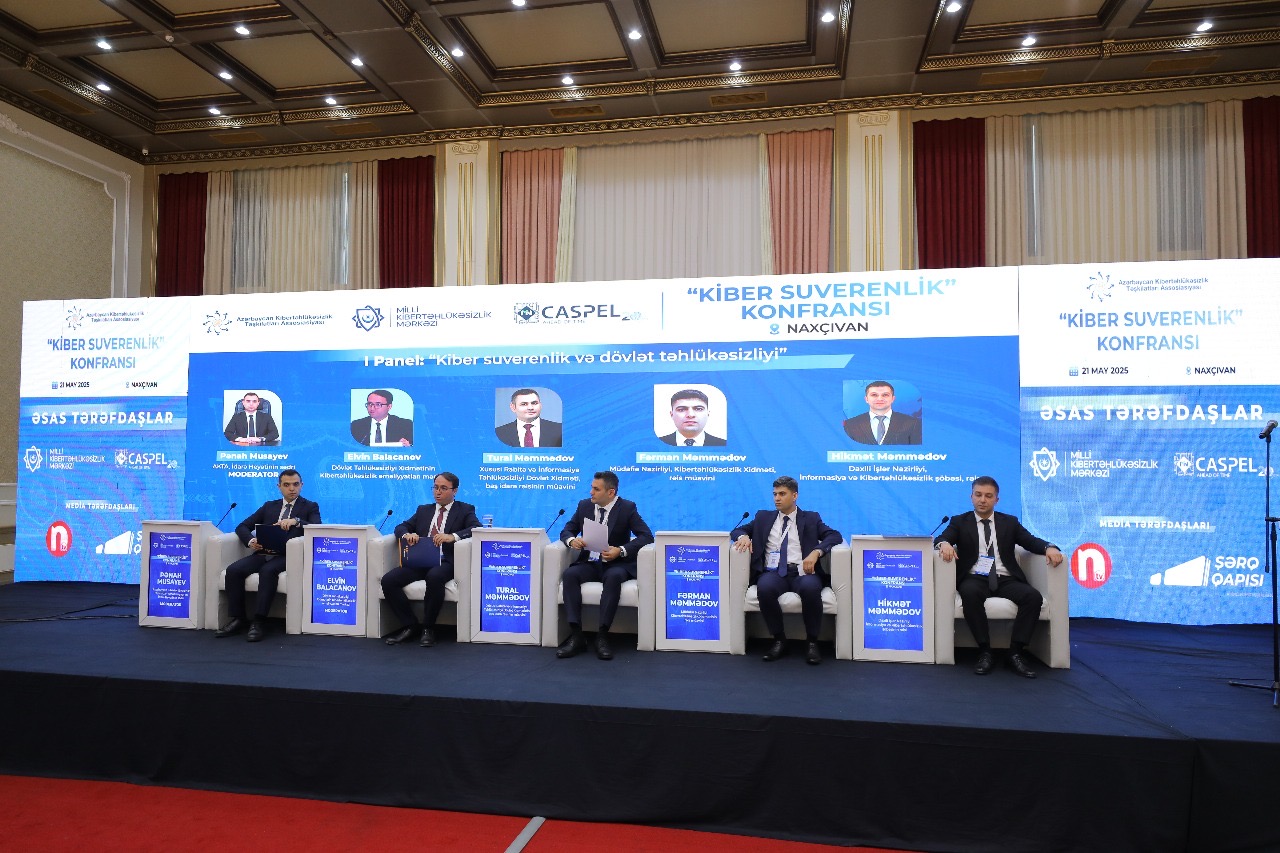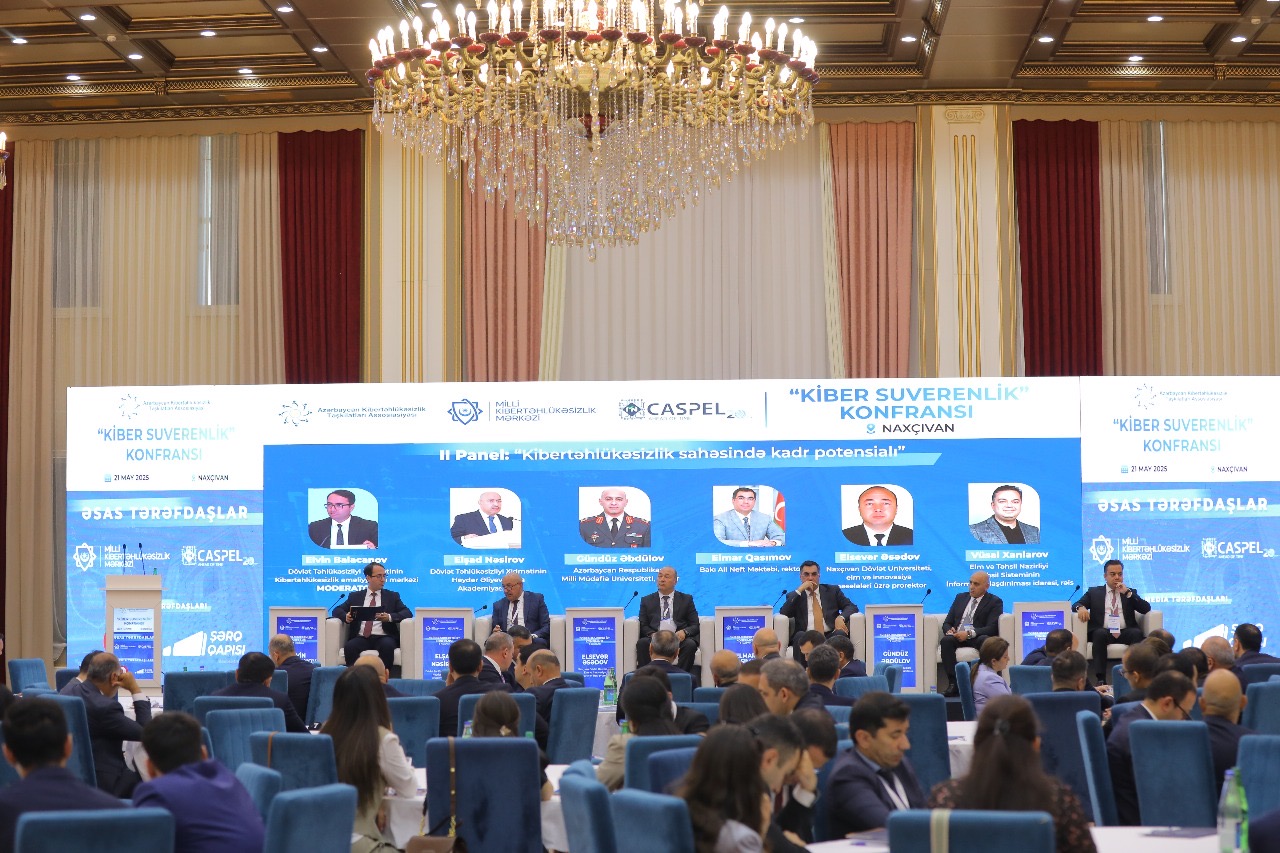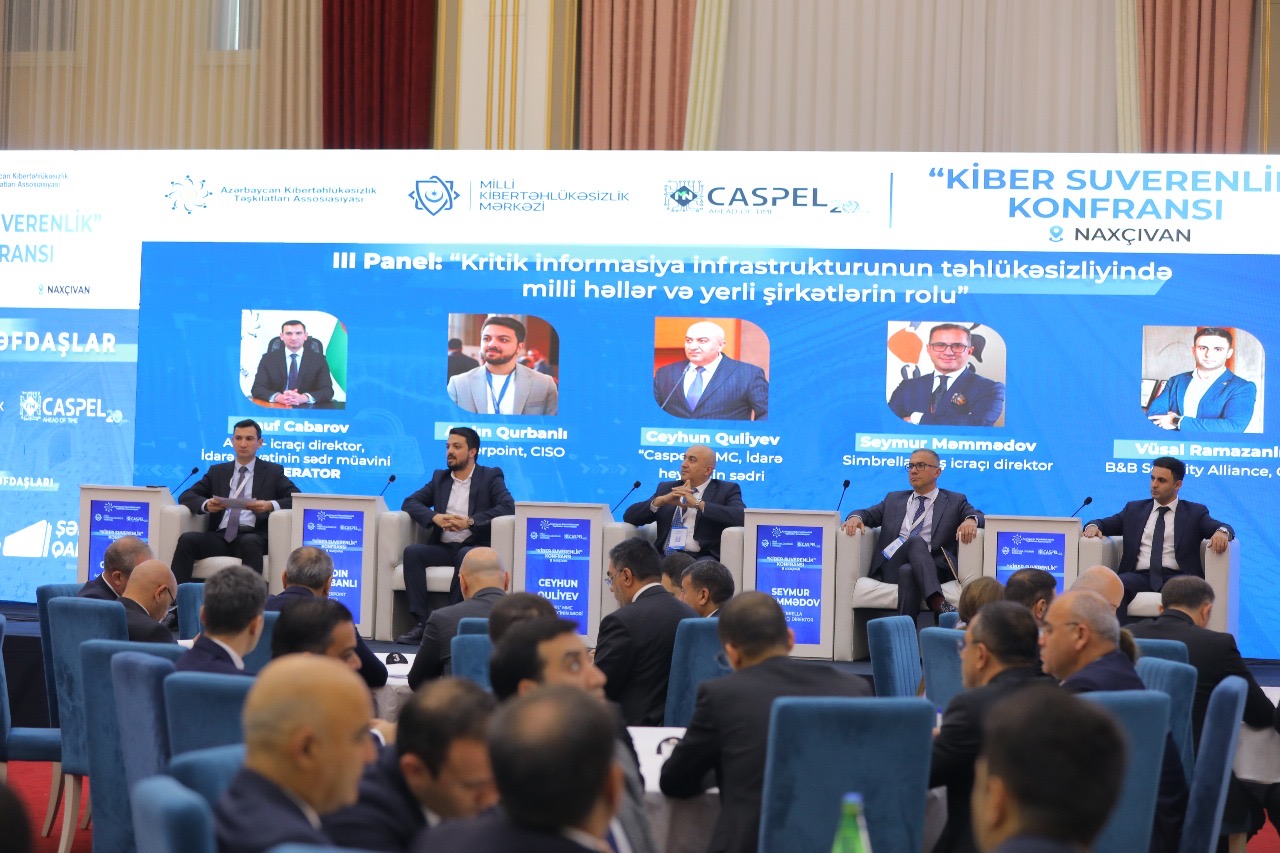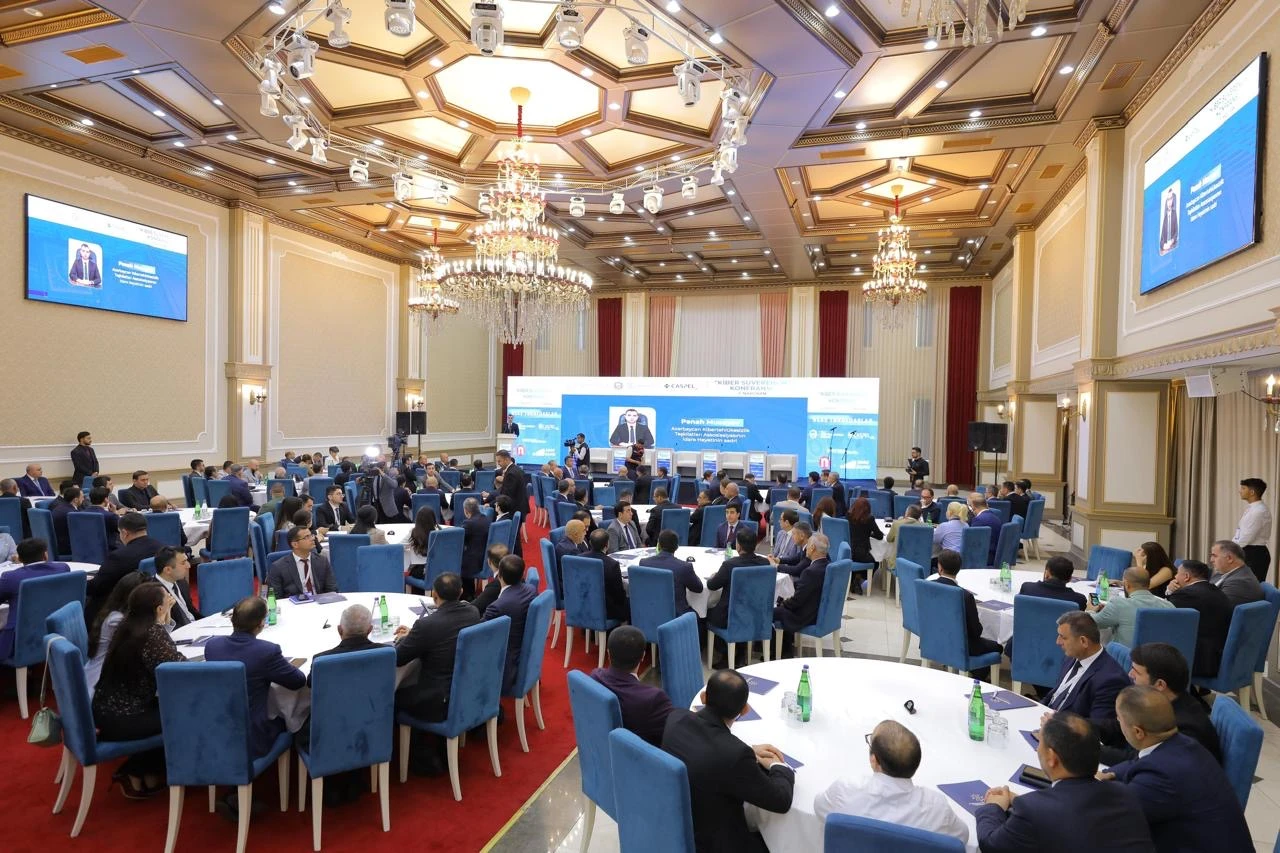
“Cyber Sovereignty” Conference Held in Nakhchivan within the Framework of the “Year of the Constitution and Sovereignty”
21.05.2025

A conference dedicated to “Cyber Sovereignty” was held in Nakhchivan as part of Azerbaijan’s declared “Year of the Constitution and Sovereignty.” The event was organized by the Association of Cybersecurity Organizations of Azerbaijan, with key partnerships from the National Cybersecurity Center and “Caspel” LLC, and media support from “Nakhchivan Autonomous Republic Television and Radio Broadcasting” CJSC and Sharg Qapisi newspaper.
The conference opened with a moment of silence in memory of national martyrs, followed by the playing of the national anthem. A video presentation on cybersecurity was also showcased.
In his opening remarks, Panah Musayev, Chairman of the Board of the Association of Cybersecurity Organizations of Azerbaijan, emphasized the symbolic significance of hosting Azerbaijan’s first cyber sovereignty-focused conference in Nakhchivan. He highlighted the region’s pivotal role in the country’s history of independence and sovereignty, noting key events such as the first official declaration to leave the Soviet Union, the boycott of an illegitimate Soviet referendum, and the re-adoption of the tricolor flag of the Azerbaijan Democratic Republic after 70 years. These milestones underscore Nakhchivan’s historical importance in upholding national sovereignty and will.
Musayev also stressed that rapid technological advancement and the ongoing transition to digital platforms have introduced new risks and security challenges. He expressed confidence that the discussions at the conference would significantly contribute to shaping a conceptual understanding of cyber sovereignty in Azerbaijan and would help lay the groundwork for future national strategies and sustained collaboration in this field.
Davud Rustamov, Head of the Cybersecurity Operations Center at the State Security Service of the Republic of Azerbaijan, shared global statistics on data breaches for 2024–2025. He noted a 10% increase compared to the previous year, marking the highest levels recorded to date. Importantly, 74% of breaches were attributed to human factors such as errors, social engineering, and internal misuse, highlighting the urgent need for skilled cybersecurity professionals. He also reported a 71% increase in cyberattacks involving stolen user credentials, underlining the importance of effective defense strategies.
Elmar Gasimov, Rector of Baku Higher Oil School, emphasized the critical need to train cybersecurity professionals for the labor market. He noted that, through a joint initiative by the Ministry of Science and Education and the State Security Service, a new curriculum has been developed with input from top local universities, government agencies, and Azerbaijani experts working at prestigious international institutions. The program was designed to align with current labor market demands in both the public and private sectors. Gasimov stressed the importance of introducing specialized disciplines in line with market needs and called for the involvement of dedicated institutions and foreign experts to build national human capital—a key responsibility for higher education institutions.
The conference proceeded with panel discussions, featuring key representatives from various institutions. Topics included “Cyber Sovereignty and National Security,” “Human Capital Development in Cybersecurity,” and “National Solutions and the Role of Local Companies in Protecting Critical Information Infrastructure.”
Panelists included Elvin Balajanov from the State Security Service’s Cybersecurity Operations Center, Elshad Nasirov, Head of the Heydar Aliyev Academy of the State Security Service, Tural Mammadov, Deputy Head of the Special Communication and Information Security State Service, Farman Mammadov, Deputy Head of the Ministry of Defense’s Cybersecurity Service, Major General Gunduz Abdullov, Rector of the National Defense University, Vusal Khanlarov, Head of the Ministry of Science and Education’s IT Department, Ceyhun Guliyev, Chairman of Caspel LLC, and Seymour Mammadov, CEO of Simbrella, among others.
Hikmat Mammadov, Head of the Information and Cybersecurity Department at the Ministry of Internal Affairs, reported that card fraud incidents caused more than 22 million AZN in losses to citizens in 2024, with losses exceeding 6 million AZN in the first four months of 2025. He noted that cybercrimes often stem from the theft of personal data from bank card holders and reiterated that cyberspace presents real economic threats. Vigilance is essential for everyone, especially in the fight against cross-border cybercrime.
In response to a question from Rector Elmar Gasimov about the availability of annual cybercrime statistics, Hikmat Mammadov stated that since cyber theft and fraud are not yet classified under Chapter 30 of the Criminal Code, publishing statistical data poses certain difficulties.
The conference brought together over 150 participants, including senior government officials, university rectors, academic representatives, senior executives from leading IT companies, and prominent local experts.
At the conclusion of the event, letters of appreciation were presented to participants, partners, and volunteers.
